
Curicó: The Heart of Chilean Wine Country
Curicó is a charming city located in the Maule Region of Chile. Known for its vibrant vineyards and lush landscapes, this city offers a perfect blend of natural beauty and rich cultural heritage. The region's Mediterranean climate makes it an ideal location for wine production, and visitors can enjoy tours of some of the finest wineries in the country. Curicó is not just about wine; the city is steeped in history and tradition. The historic Plaza de Armas is a must-see, with its beautiful gardens and the iconic clock tower. Surrounding the plaza, you'll find quaint cafes and local shops where you can immerse yourself in the local culture. The city also hosts the annual Fiesta de la Vendimia, a grape harvest festival that celebrates the region's winemaking traditions with music, dance, and, of course, wine tasting. Nature lovers will find plenty to explore in and around Curicó. The nearby Radal Siete Tazas National Park is famous for its stunning waterfalls and natural pools. The park offers excellent hiking trails, picnic spots, and opportunities for wildlife spotting. Whether you're a wine enthusiast, a history buff, or an outdoor adventurer, Curicó has something to offer everyone.
Local tips in Curicó
- Visit during the Fiesta de la Vendimia in March for a unique cultural experience.
- Take a guided wine tour to fully appreciate Curicó's renowned vineyards.
- Explore Radal Siete Tazas National Park early in the morning to avoid crowds.
- Don't miss the local markets around Plaza de Armas for authentic Chilean crafts and cuisine.
- Rent a bike to explore the city and its scenic surroundings at your own pace.
Curicó: The Heart of Chilean Wine Country
Curicó is a charming city located in the Maule Region of Chile. Known for its vibrant vineyards and lush landscapes, this city offers a perfect blend of natural beauty and rich cultural heritage. The region's Mediterranean climate makes it an ideal location for wine production, and visitors can enjoy tours of some of the finest wineries in the country. Curicó is not just about wine; the city is steeped in history and tradition. The historic Plaza de Armas is a must-see, with its beautiful gardens and the iconic clock tower. Surrounding the plaza, you'll find quaint cafes and local shops where you can immerse yourself in the local culture. The city also hosts the annual Fiesta de la Vendimia, a grape harvest festival that celebrates the region's winemaking traditions with music, dance, and, of course, wine tasting. Nature lovers will find plenty to explore in and around Curicó. The nearby Radal Siete Tazas National Park is famous for its stunning waterfalls and natural pools. The park offers excellent hiking trails, picnic spots, and opportunities for wildlife spotting. Whether you're a wine enthusiast, a history buff, or an outdoor adventurer, Curicó has something to offer everyone.
When is the best time to go to Curicó?
Iconic landmarks you can’t miss
Parque Nacional Radal Siete Tazas
Explore the enchanting Parque Nacional Radal Siete Tazas, home to stunning waterfalls and lush landscapes in the heart of Chile's Maule region.
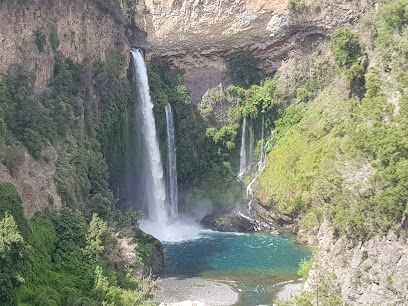
Plaza de Armas
Experience the vibrant culture and scenic beauty of Plaza de Armas in Curicó, Chile, a must-visit destination for every traveler.
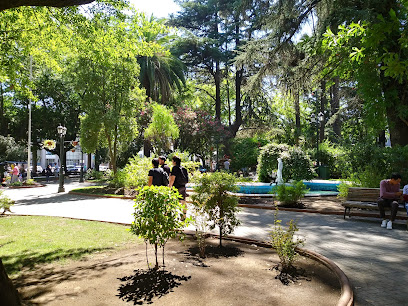
Cerro Carlos Condell
Discover the natural beauty and breathtaking views at Cerro Carlos Condell, a serene city park in Curicó, Maule, perfect for nature lovers and outdoor enthusiasts.
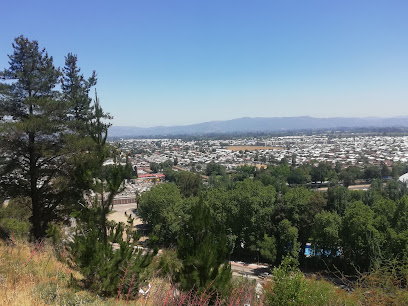
Ingles Park
Ingles Park: Explore Chile's Natural Paradise with Stunning Landscapes, Diverse Wildlife, and Outdoor Adventures Awaiting You.
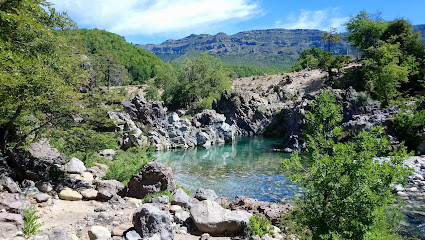
Hotel Diego de Almagro Curico
Experience comfort and hospitality at Hotel Diego de Almagro Curico, your gateway to the beautiful Maule region of Chile.

Radisson Hotel Curico
Experience comfort and convenience at Radisson Hotel Curico, your ideal base for exploring the heart of Chile's wine country.
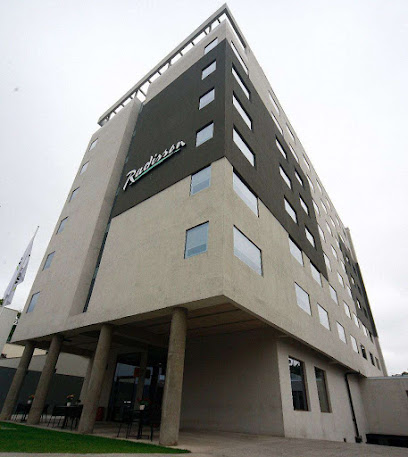
Hotel Raices
Discover the charm of Curicó at Hotel Raices, where modern comfort meets traditional hospitality in the heart of Chile's picturesque Maule region.
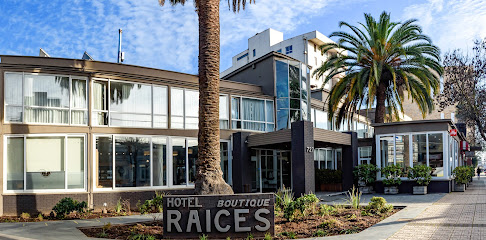
Villa El Descanso
Experience tranquility and comfort at Villa El Descanso in Curicó, your gateway to the beautiful Maule Valley and Chilean hospitality.

Restaurante de Vinos Miguel Torres
Discover the perfect blend of Chilean cuisine and exquisite wines at Restaurante de Vinos Miguel Torres in the stunning Maule region.
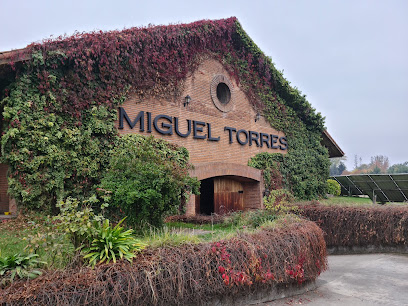
Hostal Centro
Experience Curicó from the heart of the city at Hostal Centro, offering cozy accommodations and easy access to local attractions.
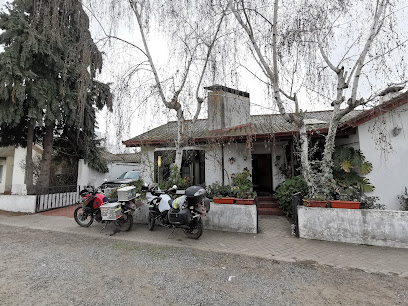
Los Niches Sector La Obra
Experience the serene beauty of Los Niches Sector La Obra, a lush park in Curicó offering relaxation and a taste of local culture.
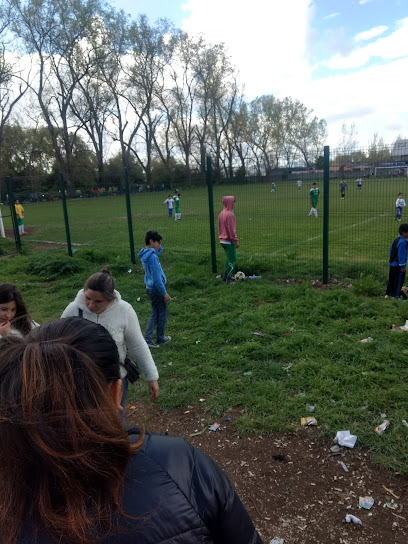
Ruta del Vino Valles de Curico
Explore Chile's Curicó Valley: a scenic wine route with family-owned wineries, modern vineyards, and exceptional Cabernet Sauvignon and Carmenère.
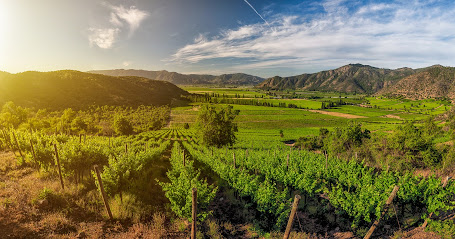
Chilean Adventures
Explore the breathtaking landscapes and diverse outdoor activities at Chilean Adventures in the scenic Maule region of Chile, a perfect getaway for nature lovers.
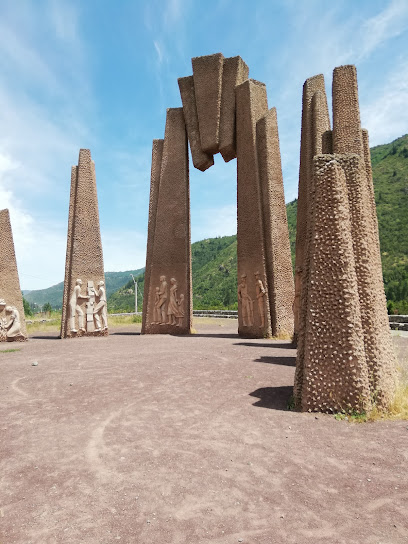
Viña echeverria
Explore Viña Echeverría in the Maule Valley, where rich traditions of winemaking meet breathtaking landscapes and exquisite tastings.
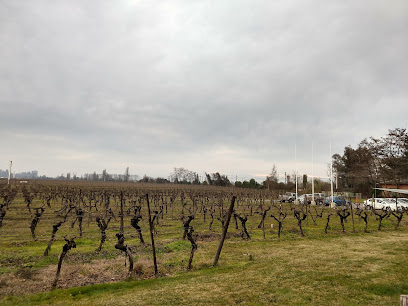
Las 7 tazas
Explore the enchanting waterfalls and scenic beauty of Las 7 Tazas in Curicó, Maule, a natural paradise for adventure seekers and nature lovers alike.
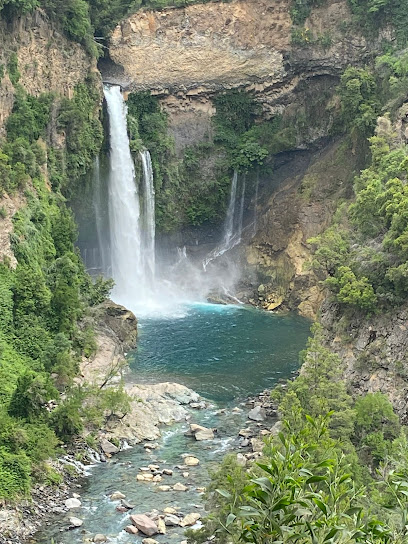
Unmissable attractions to see
Plaza de Armas
Discover the charm of Plaza de Armas in Curicó, a scenic spot where culture, history, and vibrant community life converge for an unforgettable experience.
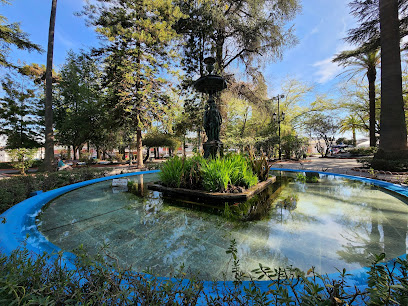
Cerro Carlos Condell
Experience the natural beauty and tranquility of Cerro Carlos Condell, a serene city park in Curicó, perfect for relaxation and exploration.
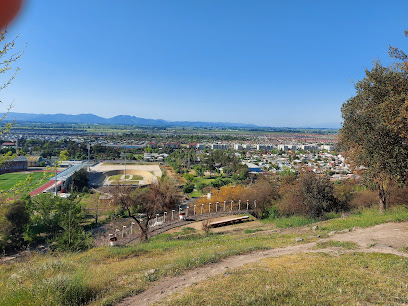
Plaza De Armas De San Fernando
Explore Plaza De Armas in San Fernando, a vibrant park filled with cultural experiences, local flavors, and beautiful landscapes in O'Higgins, Chile.
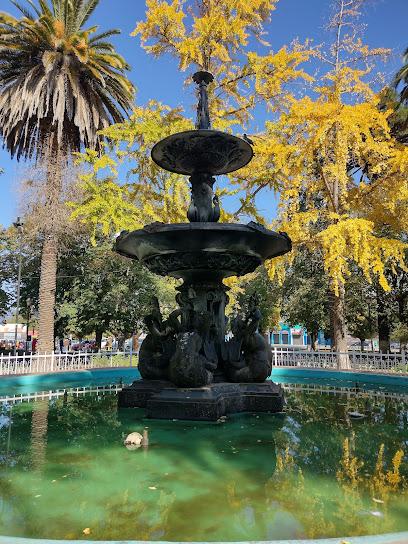
Cascada Invertida
Discover the enchanting Cascada Invertida, a mesmerizing inverted waterfall in San Clemente, Maule, offering breathtaking views and unforgettable nature experiences.
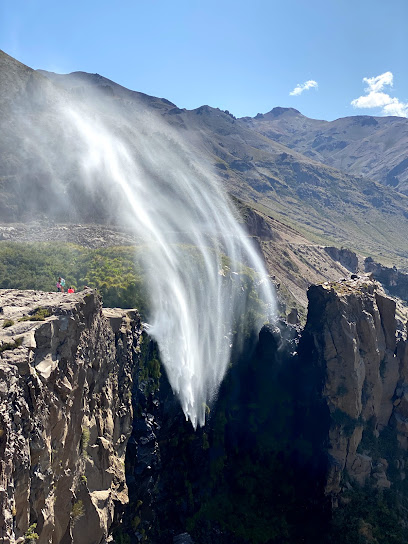
Viña Viu Manent
Explore Viu Manent in Santa Cruz, where exquisite wines, scenic views, and equestrian adventures come together in a true Chilean vineyard experience.
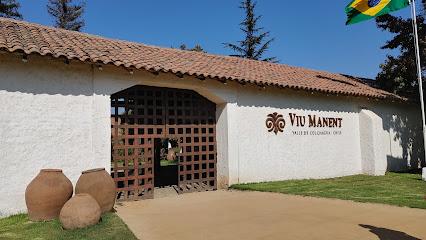
Viña MontGras
Explore the exquisite wines and breathtaking vineyards of Viña MontGras, a highlight of Chile's O'Higgins region for wine enthusiasts and tourists alike.
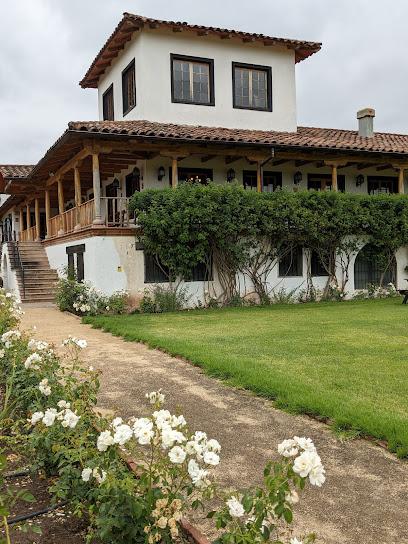
Miguel Torres Chile
Discover the enchanting world of Miguel Torres Chile, where exquisite wines and stunning vineyard landscapes await your exploration in the heart of the Maule Valley.
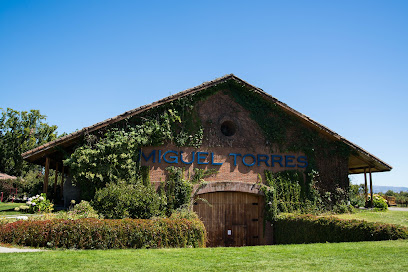
Viña VIK
Discover the essence of Chilean viticulture at Viña VIK, where stunning landscapes meet award-winning wines in O'Higgins.
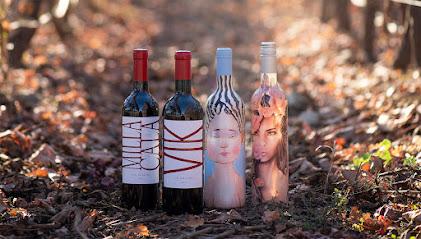
Viña Maquis
Discover the exquisite wines and breathtaking landscapes of Viña Maquis, a premier vineyard in the heart of O'Higgins, Chile.
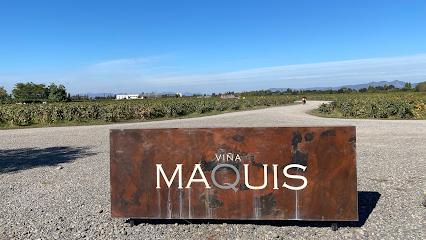
Chilean Adventures
Explore the breathtaking landscapes and vibrant culture of Maule at Chilean Adventures, a premier destination for outdoor enthusiasts and nature lovers.
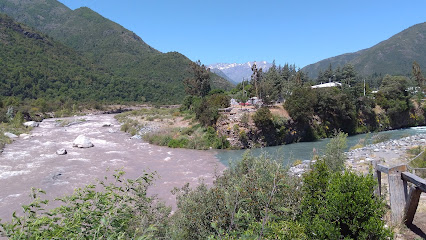
Quebrada Las Trancas Park
Explore the natural beauty of Quebrada Las Trancas Park, a serene ecological park in Maule, Chile, perfect for outdoor adventures and family outings.
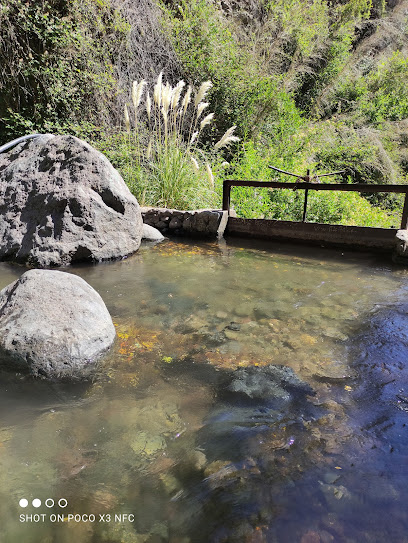
volantinodromo curico
Experience the vibrant atmosphere of Volantinodromo Curico, a unique park in Curico, Maule, dedicated to the art of kite flying and outdoor fun.
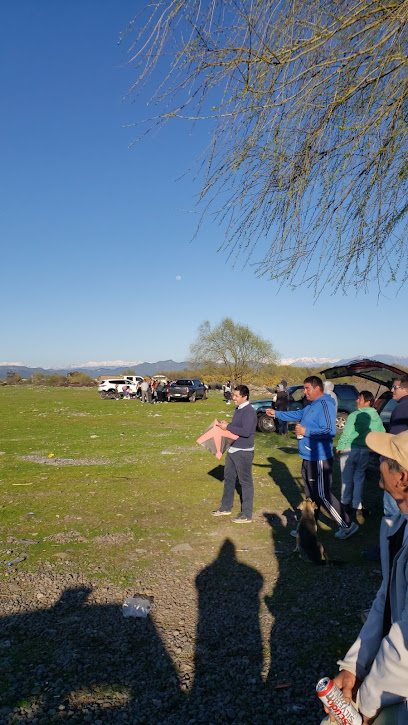
Curico
Explore Curico, a charming city in Chile's Maule region, known for its exquisite vineyards, rich culture, and inviting atmosphere for every traveler.
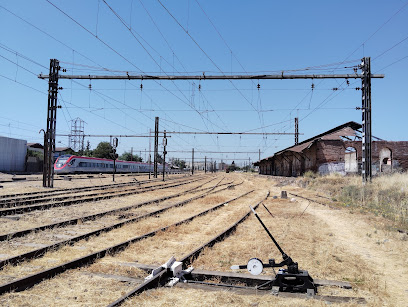
Curico chile
Explore the enchanting town of Curicó, Chile, where rich vineyards, vibrant markets, and stunning landscapes await every traveler.
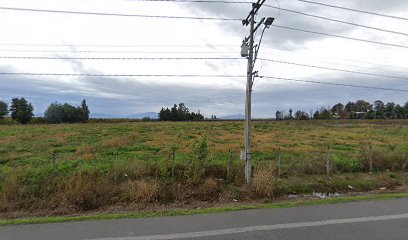
Letras Gigantes Curico
Discover the vibrant Letras Gigantes in Curicó - a colorful landmark offering stunning views and perfect photo opportunities in the heart of Maule.
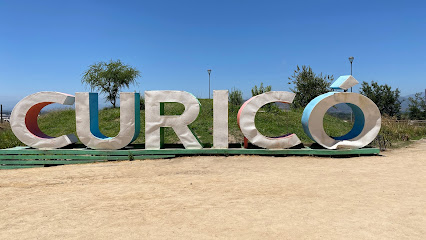
Essential places to dine
Restaurant Fuego Bendito
Discover the exquisite taste of expertly grilled meats at Restaurant Fuego Bendito in Curicó - where culinary passion meets local tradition.
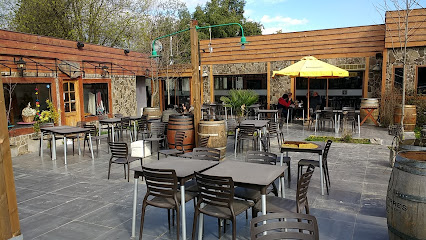
Perú Gastronómico
Experience the vibrant tastes of Peru at Perú Gastronómico in Curicó - where every dish is a celebration of flavor.
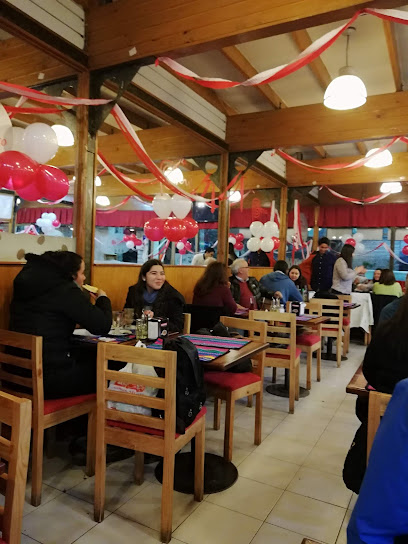
Mi Casa Restaurante
Discover the heart of Chilean cuisine at Mi Casa Restaurante in Curicó—where every meal is a celebration of local flavors.
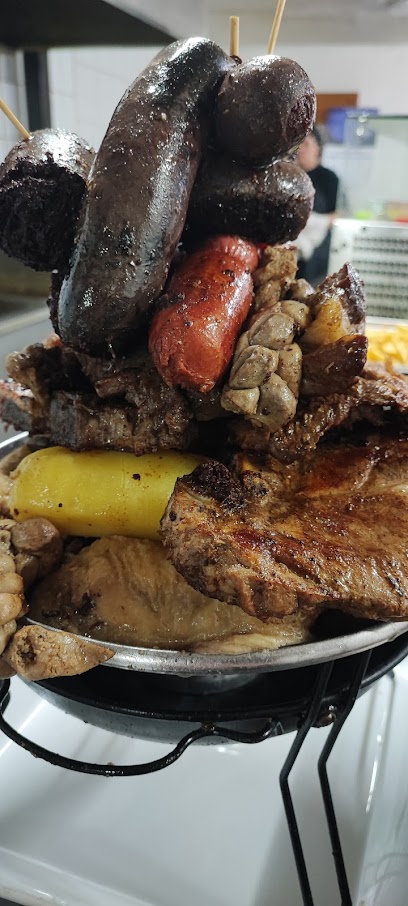
Restaurant Mi Perú Curicó
Experience authentic Peruvian cuisine at Restaurant Mi Perú Curicó – where every dish tells a story of tradition and flavor.
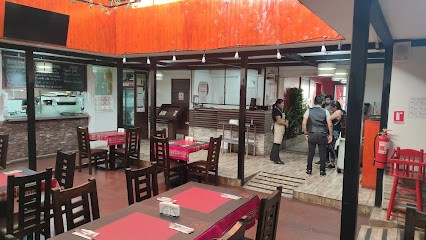
Andö
Experience exquisite dining at Andö in Curicó—where local flavors meet culinary excellence in a cozy atmosphere.
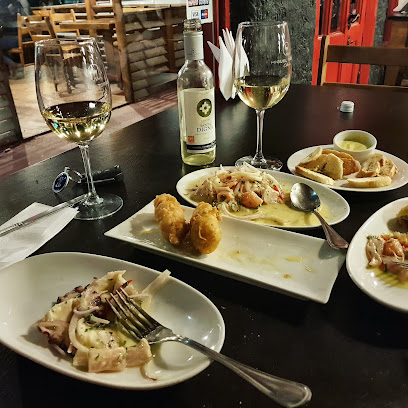
Perutaly
Discover the authentic flavors of Chile at Perutaly in Curicó – where every dish tells a story.
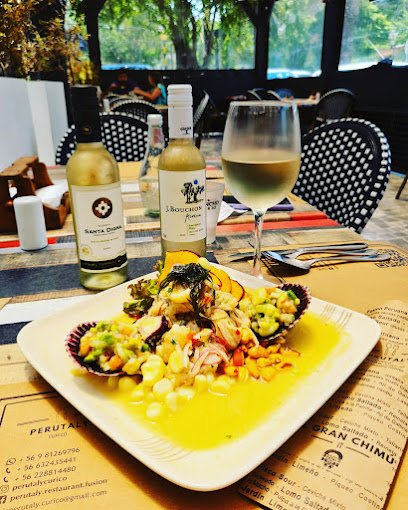
La Vegetable
Discover La Vegetable in Curicó: A culinary gem offering fresh local ingredients and vibrant flavors in a warm atmosphere.
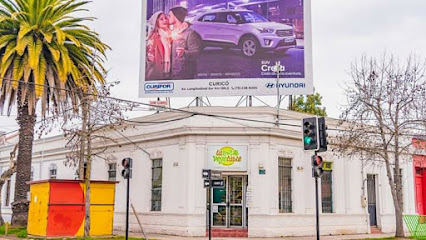
Los Ricos Pobres
Experience authentic Chilean cuisine at Los Ricos Pobres in Curicó - where tradition meets taste in every dish.
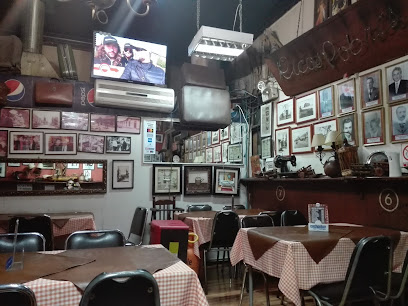
Kardamomo
Discover authentic Chilean flavors at Kardamomo in Curicó - where delicious sandwiches meet warm hospitality.
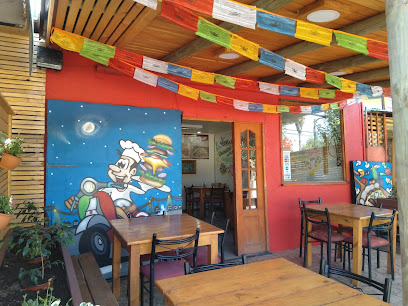
El Rincon Che
Experience authentic Chilean cuisine at El Rincon Che in Curicó—a delightful dining spot offering local flavors and warm hospitality.
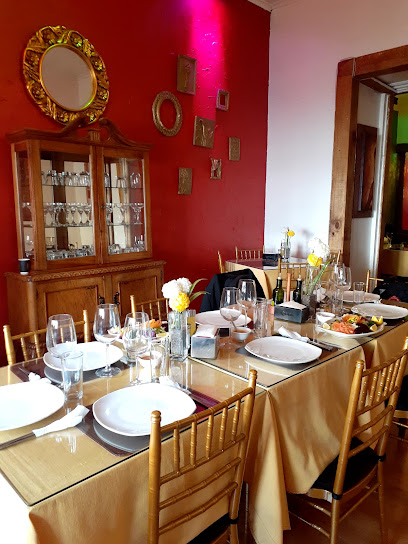
Brasas Curicó
Discover the rich flavors of Chilean cuisine at Brasas Curicó - a culinary gem in the heart of Curicó that promises an unforgettable dining experience.
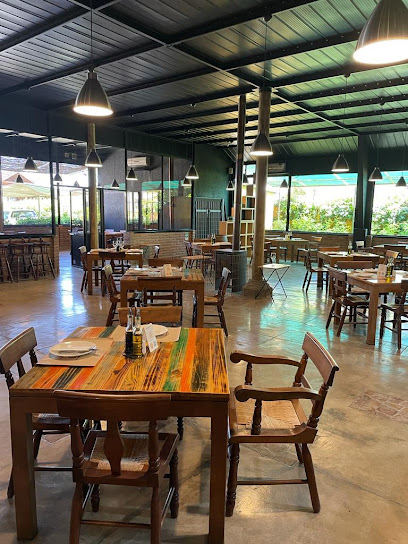
Alambique&Grill Restobar
Discover Alambique & Grill Restobar in Curicó - where authentic Chilean flavors meet modern culinary artistry.
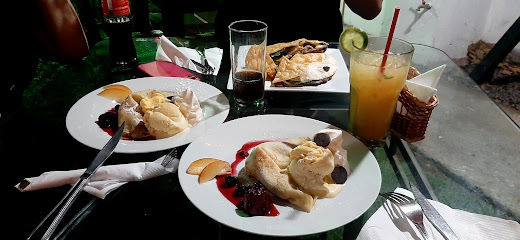
Trattoria La Pasta
Discover the essence of Italy at Trattoria La Pasta in Curicó – where every dish tells a story.
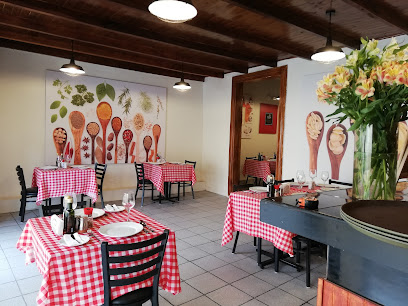
Comida Coreana
Savor authentic Korean cuisine at Comida Coreana in Curicó – a delightful culinary experience awaits every visitor.
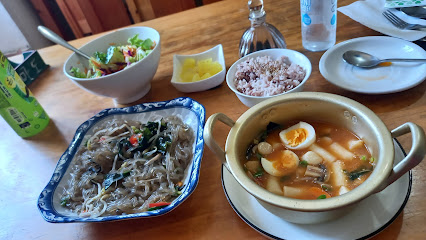
Lanzas y Fuego
Experience authentic Chilean barbecue at Lanzas y Fuego in Curicó - where every bite tells a story.
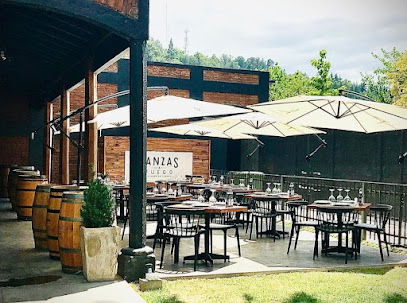
Markets, malls and hidden boutiques
Mall Curicó
Discover a vibrant shopping experience at Mall Curicó in Maule, featuring diverse stores, delightful dining, and exciting entertainment for all.
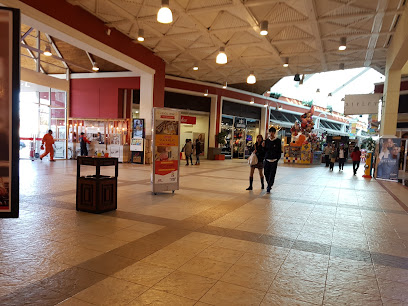
Mall Valle Curicó
Explore the best of shopping, dining, and entertainment at Mall Valle Curicó, a premier shopping hub in the heart of Curicó.
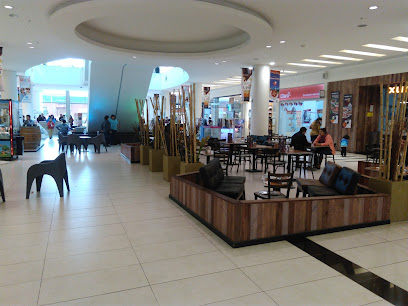
Ripley Curicó
Explore Ripley Curicó for an unparalleled shopping experience in O'Higgins, featuring a wide variety of products from fashion to home essentials.
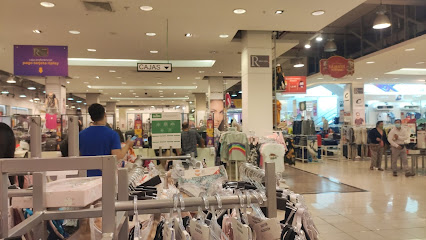
La Polar
Discover La Polar in Curicó: A premier clothing store offering a wide range of stylish apparel and accessories for all ages.
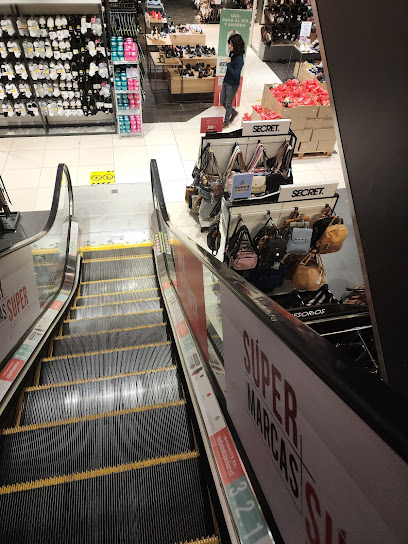
Corona
Explore Corona in Curicó for a complete fashion experience, featuring stylish clothing for all ages and exceptional customer service.
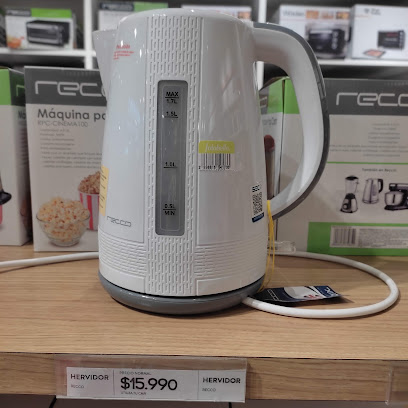
Strip Center Puerta Oriente
Explore the vibrant Strip Center Puerta Oriente in Curicó for an unforgettable shopping experience with diverse stores, delicious dining, and lively entertainment.
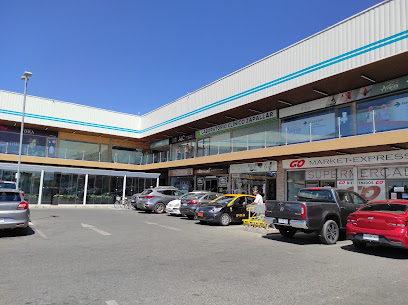
PETIT PARÍS
Experience family-friendly shopping at Petit París in Curicó, offering a range of stylish uniforms and clothing for all ages.
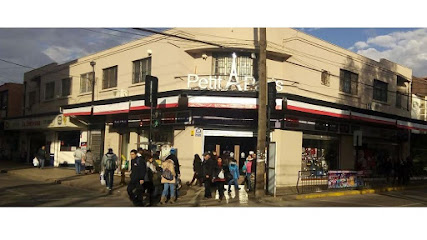
Carrasco Quiroz Patricia Ximena
Explore the latest fashion trends at Carrasco Quiroz Patricia Ximena in Curicó, a clothing store where local style meets modern elegance.
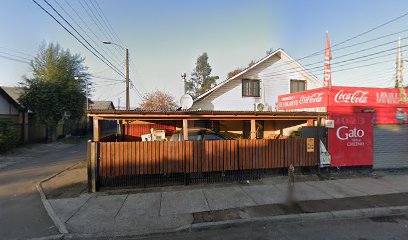
Puestos varios El Cabeza
Explore the vibrant flavors of Curicó at Puestos Varios El Cabeza, a local grocery store filled with fresh produce, artisanal goods, and Chilean delights.
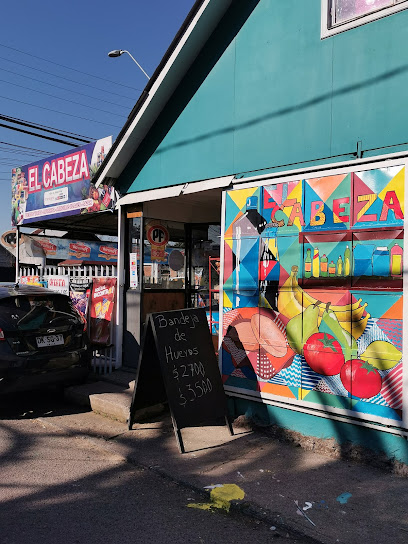
BOUTIQUE NOVIAS KARTAM
Discover unparalleled bridal elegance at Boutique Novias Kartam in Curicó, where your dream wedding dress awaits.

Tienda El Hincha- Equipaciones WEWN
Explore Curicó's Tienda El Hincha for a diverse range of sporting goods and immerse yourself in the local sports culture.
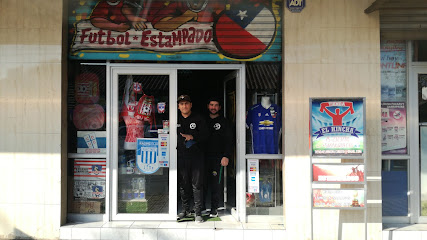
Tienda Turqueza Curico
Explore the vibrant artisan culture of Curicó at Tienda Turqueza, a boutique full of unique handmade treasures and local crafts.
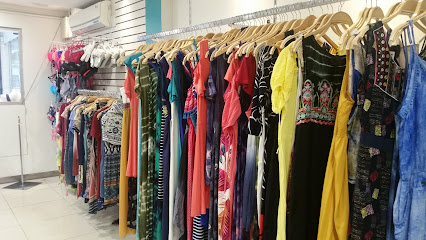
block
Explore Curicó's premier shoe store, Block, where fashion meets comfort in a vibrant shopping experience.
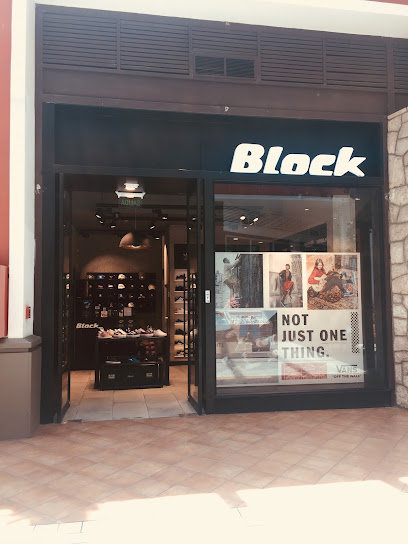
Boutiques Estilo Curicó
Explore unique fashion and local artistry at Boutiques Estilo Curicó, the ultimate shopping destination in Curicó, Chile.
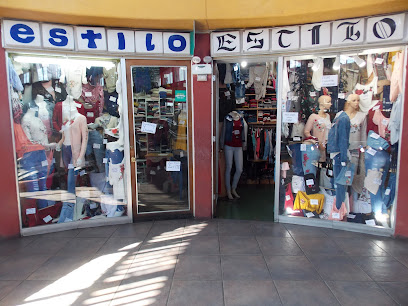
Florería Pétalos & Flores
Explore Florería Pétalos & Flores in Curicó for exquisite floral arrangements and unique gifts that capture the spirit of the Maule region.
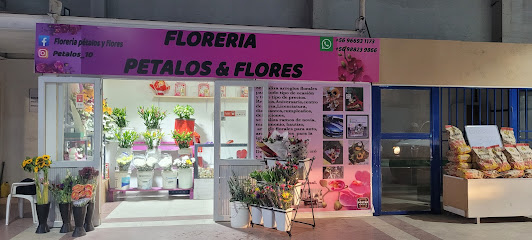
Essential bars & hidden hideouts
San Pancho Bar
Discover the vibrant flavors and lively atmosphere at San Pancho Bar in Curicó, where great food and drinks unite for an unforgettable experience.
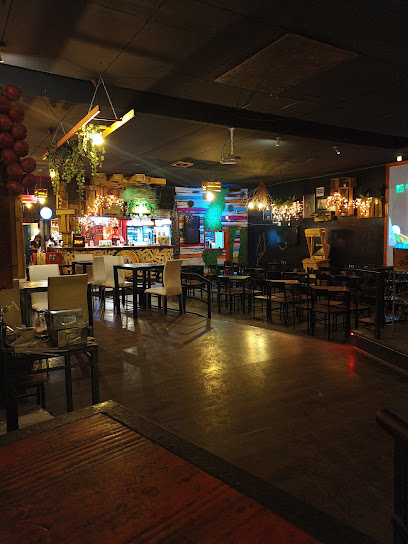
Calabazas Bar
Discover the lively ambiance of Calabazas Bar, a perfect spot for drinks and socializing in the heart of Curicó's nightlife.
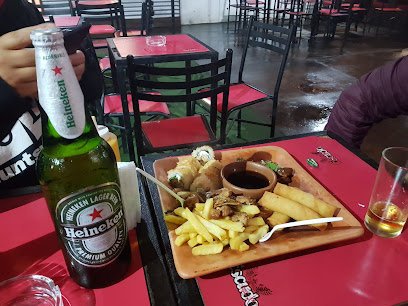
Rincon Che
Experience the vibrant nightlife of Curicó at Rincon Che, where local drinks, delicious tapas, and live music come together for an unforgettable evening.
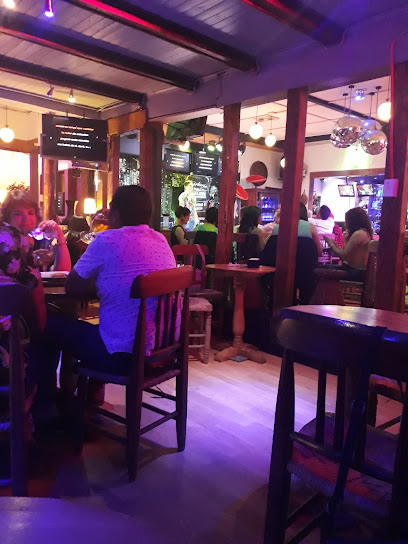
Almíbar
Experience the vibrant nightlife of Curicó at Almíbar, a welcoming bar offering delightful drinks and a cozy atmosphere.
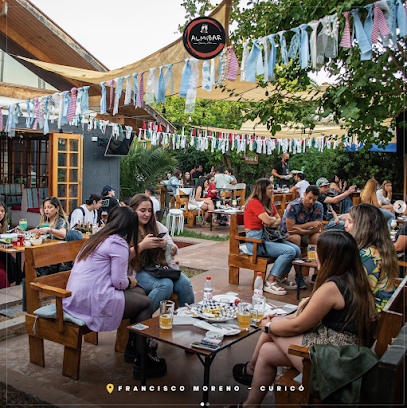
La Casa
Experience the vibrant nightlife at La Casa, Curicó's premier bar, offering delightful drinks and a lively atmosphere for all visitors.
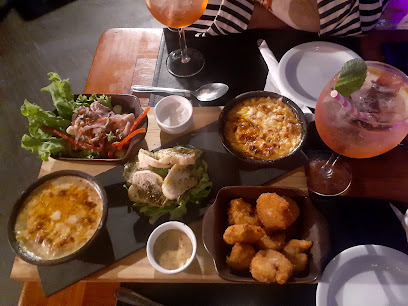
BAR PLAZA
Experience the vibrant nightlife at Bar Plaza, Curicó’s premier live music bar, where every night is a celebration of local talent and good vibes.
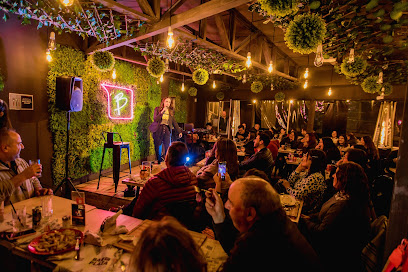
SEBAR
Discover the lively atmosphere of SEBAR in Curico, where local flavors and vibrant nightlife come together for an unforgettable experience.
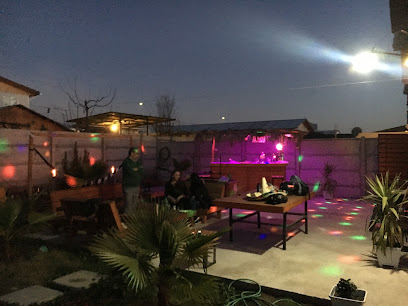
Papita's house
Experience the lively atmosphere and local flavors at Papita's House, a premier bar in Curicó, perfect for unwinding and socializing.
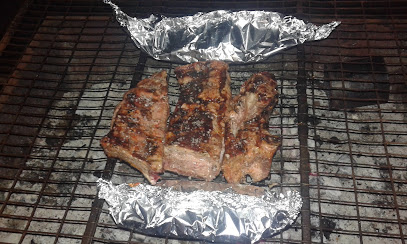
Bar la nota
Discover the vibrant nightlife of Curicó at Bar La Nota, a lively bar offering delicious drinks and unforgettable evenings.
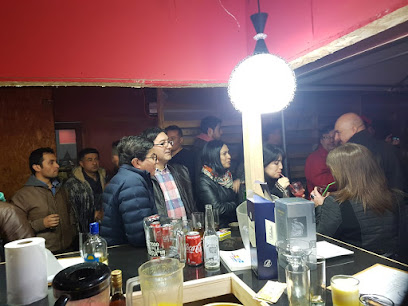
Deli.mojitos
Experience the lively spirit of Curicó at Deli.mojitos, where innovative cocktails and a vibrant atmosphere await every visitor.
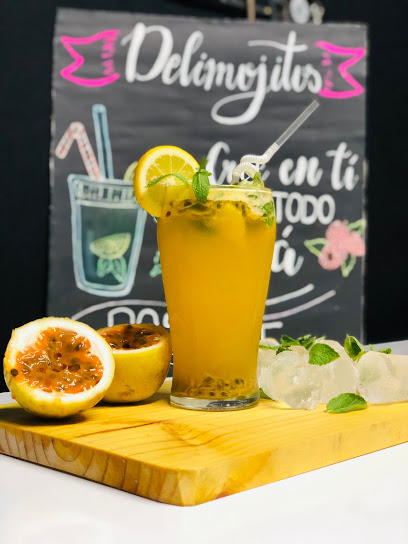
Ibar Restobar
Discover the culinary artistry of Ibar Restobar in Curicó - a must-visit gastropub for food lovers seeking local flavors and vibrant atmosphere.
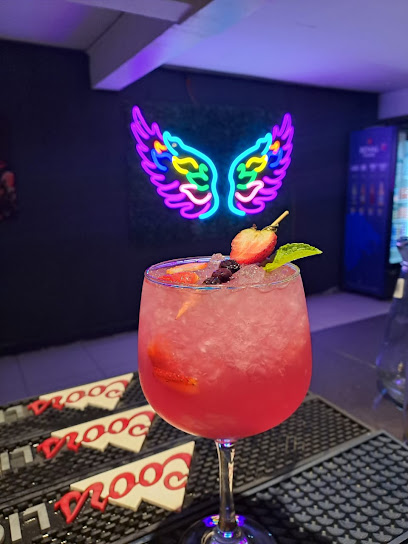
La rumba
Experience the vibrant nightlife of Curicó at La Rumba, a lively live music bar that promises unforgettable entertainment and a taste of local culture.
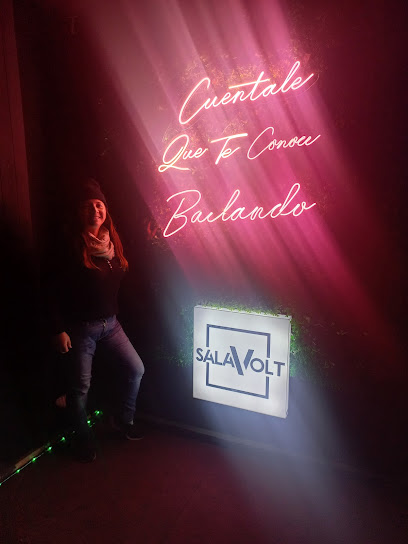
Dejavu Club Restobar
Experience the vibrant culinary scene at Dejavu Club Restobar, Curicó's premier gastropub for delicious food and lively nightlife.
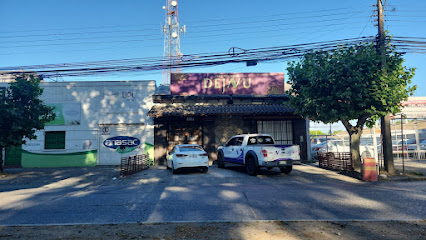
Mamba bar
Experience the vibrant nightlife at Mamba Bar in Curicó, renowned for its delicious cocktails and lively atmosphere, perfect for socializing and relaxation.
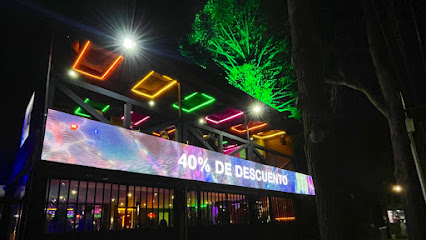
Local Phrases
-
- HelloHola
[OH-lah] - GoodbyeAdiós
[ah-DYOHSS] - YesSí
[see] - NoNo
[noh] - Please/You're welcomePor favor/De nada
[pohr fah-BOHR/deh NAH-dah] - Thank youGracias
[GRAH-syahss] - Excuse me/SorryPerdón/Lo siento
[pehr-DOHN/loh SYEHN-toh] - How are you?¿Cómo estás?
[KOH-moh ehs-TAHS] - Fine. And you?Bien. ¿Y tú?
[byehn. ee too] - Do you speak English?¿Hablas inglés?
[AH-blahs een-GLEHS] - I don't understandNo entiendo
[noh ehn-TYEHN-doh]
- HelloHola
-
- I'd like to see the menu, pleaseMe gustaría ver el menú, por favor
[meh goos-tah-REE-ah behr ehl MEH-noo, por fah-BOHR] - I don't eat meatNo como carne
[noh KOH-moh KAHR-neh] - Cheers!¡Salud!
[sah-LOOD] - I would like to pay, pleaseMe gustaría pagar, por favor
[meh goos-tah-REE-ah pah-GAHR, por fah-BOHR]
- I'd like to see the menu, pleaseMe gustaría ver el menú, por favor
-
- Help!¡Ayuda!
[ah-YOO-dah] - Go away!¡Vete!
[VEH-teh] - Call the Police!¡Llama a la policía!
[YAH-mah ah lah poh-LEE-see-ah] - Call a doctor!¡Llama a un médico!
[YAH-mah ah oon MEH-dee-koh] - I'm lostEstoy perdido
[ehs-TOY pehr-DEE-doh] - I'm illEstoy enfermo
[ehs-TOY ehn-FEHR-moh]
- Help!¡Ayuda!
-
- I'd like to buy...Me gustaría comprar...
[meh goos-tah-REE-ah kohm-PRAR] - I'm just lookingSolo estoy mirando
[SO-loh ehs-TOY meeh-RAHN-doh] - How much is it?¿Cuánto cuesta?
[KWAHN-toh KWEHS-tah] - That's too expensiveEso es muy caro
[EH-soh ehs moo-ee KAH-roh] - Can you lower the price?¿Puedes bajar el precio?
[PWEH-dehs BAH-hahr ehl PREE-syoh]
- I'd like to buy...Me gustaría comprar...
-
- What time is it?¿Qué hora es?
[keh OR-ah ehs] - It's one o'clockEs la una
[ehs lah OO-nah] - Half past (10)Media (10)
[MEH-dee-ah (deez) ] - MorningMañana
[mah-NYAH-nah] - AfternoonTarde
[TAHR-deh] - EveningNoche
[NOH-cheh] - YesterdayAyer
[AH-yehr] - TodayHoy
[HOY] - TomorrowMañana
[mah-NYAH-nah] - 1Uno
[OO-noh] - 2Dos
[dohss] - 3Tres
[trehs] - 4Cuatro
[KWAH-troh] - 5Cinco
[SEEN-koh] - 6Seis
[says] - 7Siete
[SYEH-teh] - 8Ocho
[OH-choh] - 9Nueve
[NWEH-veh] - 10Diez
[dyehss]
- What time is it?¿Qué hora es?
-
- Where's a/the...?¿Dónde está...?
[DOHN-deh ehs-TAH] - What's the address?¿Cuál es la dirección?
[KWAHL ehs lah dee-rehk-SYOHN] - Can you show me (on the map)?¿Puedes mostrarme (en el mapa)?
[PWEH-dehs mohs-TRAHR-meh (ehn ehl MAH-pah)] - When's the next (bus)?¿Cuándo es el próximo (autobús)?
[KWAHN-doh ehs ehl PROH-ksee-moh (ow-toh-BOOS)] - A ticket (to ....)Un boleto (a ....)
[oon boh-LEH-toh (ah)]
- Where's a/the...?¿Dónde está...?
History of Curicó
-
Curicó was founded on October 9, 1743, by the Spanish governor José Antonio Manso de Velasco. The city was originally named San José de Buenavista de Curicó. Its foundation aimed to strengthen Spanish control over the region and provide a strategic point for colonial administration and defense.
-
On December 1, 1928, Curicó was struck by a devastating earthquake that caused significant damage to the city. The earthquake measured 8.0 on the Richter scale and resulted in numerous casualties and the destruction of many buildings. This event marked a critical moment in the city's history, leading to reconstruction efforts and the modernization of infrastructure.
-
Curicó played a notable role during the Chilean War of Independence. The city served as a strategic location for both royalist and patriot forces. On March 19, 1814, the Battle of Curicó took place near the city, where patriot forces under the command of General Bernardo O'Higgins clashed with royalist troops. Although the battle did not result in a decisive victory for either side, it underscored Curicó's strategic importance in the conflict.
-
Curicó is renowned for its fertile lands and has been a significant agricultural hub since its early days. The city's economy has traditionally been based on agriculture, with vineyards, fruit orchards, and crops playing a central role. The introduction of modern agricultural techniques in the 19th and 20th centuries further boosted Curicó's productivity and established it as a key player in Chile's agricultural sector.
-
Curicó is situated in one of Chile's prominent wine-producing regions. The development of the wine industry in Curicó began in earnest in the late 19th century, with the introduction of European grape varieties. Today, Curicó Valley is famous for its high-quality wines, particularly its Cabernet Sauvignon, Merlot, and Chardonnay. The annual Curicó Wine Festival, held in March, celebrates the region's viticulture and attracts wine enthusiasts from around the world.
-
Curicó boasts a rich cultural heritage, with numerous traditions and festivals that reflect its history and local customs. The Fiesta de la Vendimia, or Grape Harvest Festival, is one of the most significant events in the city, celebrating the grape harvest with parades, music, dance, and wine tasting. Additionally, Curicó's architectural heritage, including its colonial-era buildings and the iconic Plaza de Armas, adds to the city's cultural charm.
-
In recent decades, Curicó has undergone significant modernization, transforming from a primarily agricultural town to a more diverse urban center. The development of transportation infrastructure, such as the Pan-American Highway, has improved connectivity and facilitated economic growth. Despite these changes, Curicó has managed to preserve its historical identity and cultural roots, making it a unique blend of tradition and modernity.
Curicó Essentials
-
Curicó is located in the Maule Region of Chile, approximately 200 kilometers south of Santiago. The nearest international airport is Comodoro Arturo Merino Benítez International Airport (SCL) in Santiago. From Santiago, you can take a bus, which is a popular and economical option. The journey by bus takes around 3 to 4 hours. Alternatively, you can rent a car for a more flexible travel experience. Trains also connect Santiago to Curicó, offering a comfortable and scenic route.
-
Curicó is a relatively small city, making it easy to navigate. Local taxis are readily available and affordable. Public buses operate within the city and to nearby towns. Renting a bicycle is also a great way to explore Curicó and its surroundings. For longer distances, buses and trains provide reliable service to other cities in the region.
-
The official currency in Chile is the Chilean Peso (CLP). Credit cards are widely accepted in hotels, restaurants, and larger shops. However, it is advisable to carry some cash for smaller establishments and markets. ATMs are available throughout Curicó, and major international credit cards can be used to withdraw cash.
-
Curicó is generally a safe city for tourists. However, like any urban area, it is important to take standard precautions. Avoid walking alone at night in poorly lit areas and keep an eye on your belongings in crowded places. While Curicó does not have specific high-crime areas targeting tourists, staying vigilant and aware of your surroundings is always recommended.
-
In case of emergency, dial 133 for police assistance, 131 for medical emergencies, and 132 for the fire department. The local hospital, Hospital de Curicó, provides medical services. It is advisable to have travel insurance that covers medical emergencies. Pharmacies are available for minor health issues and over-the-counter medications.
-
Fashion: Do dress comfortably and casually, but avoid overly revealing clothing. When visiting religious sites, dress modestly. Religion: Do respect local religious customs and traditions. Public Transport: Do be courteous and offer your seat to elderly passengers. Don’t eat or drink on public transport. Greetings: Do greet people with a handshake and a friendly smile. It is customary to greet with a kiss on the cheek among friends. Eating & Drinking: Do try local foods and wines, as Curicó is known for its vineyards. Don’t refuse food or drinks offered by locals, as it may be considered impolite.
-
To experience Curicó like a local, visit the Plaza de Armas, the central square where locals gather. Explore the local markets for fresh produce and artisanal goods. Take a wine tour to sample some of the region’s best wines. Engage with locals, as they are friendly and eager to share their culture and history. Don’t miss the Fiesta de la Vendimia (Grape Harvest Festival) if you visit in March, a celebration of the local wine heritage.
Trending Landmark in Curicó
-
Parque Nacional Radal Siete Tazas
-
Plaza de Armas
-
Cerro Carlos Condell
-
Ingles Park
-
Hotel Diego de Almagro Curico
-
Radisson Hotel Curico
-
Hotel Raices
-
Villa El Descanso
-
Restaurante de Vinos Miguel Torres
-
Hostal Centro
-
Los Niches Sector La Obra
-
Ruta del Vino Valles de Curico
-
Chilean Adventures
-
Viña echeverria
-
Las 7 tazas
Nearby Cities to Curicó
-
Things To Do in Rancagua
-
Things To Do in Santiago
-
Things To Do in Valparaíso
-
Things To Do in Viña del Mar
-
Things To Do in Concepción
-
Things To Do in San Rafael
-
Things To Do in Mendoza
-
Things To Do in Temuco
-
Things To Do in San Juan
-
Things To Do in Pucon
-
Things To Do in Coquimbo
-
Things To Do in La Serena
-
Things To Do in Valdivia
-
Things To Do in Osorno
-
Things To Do in Bariloche









